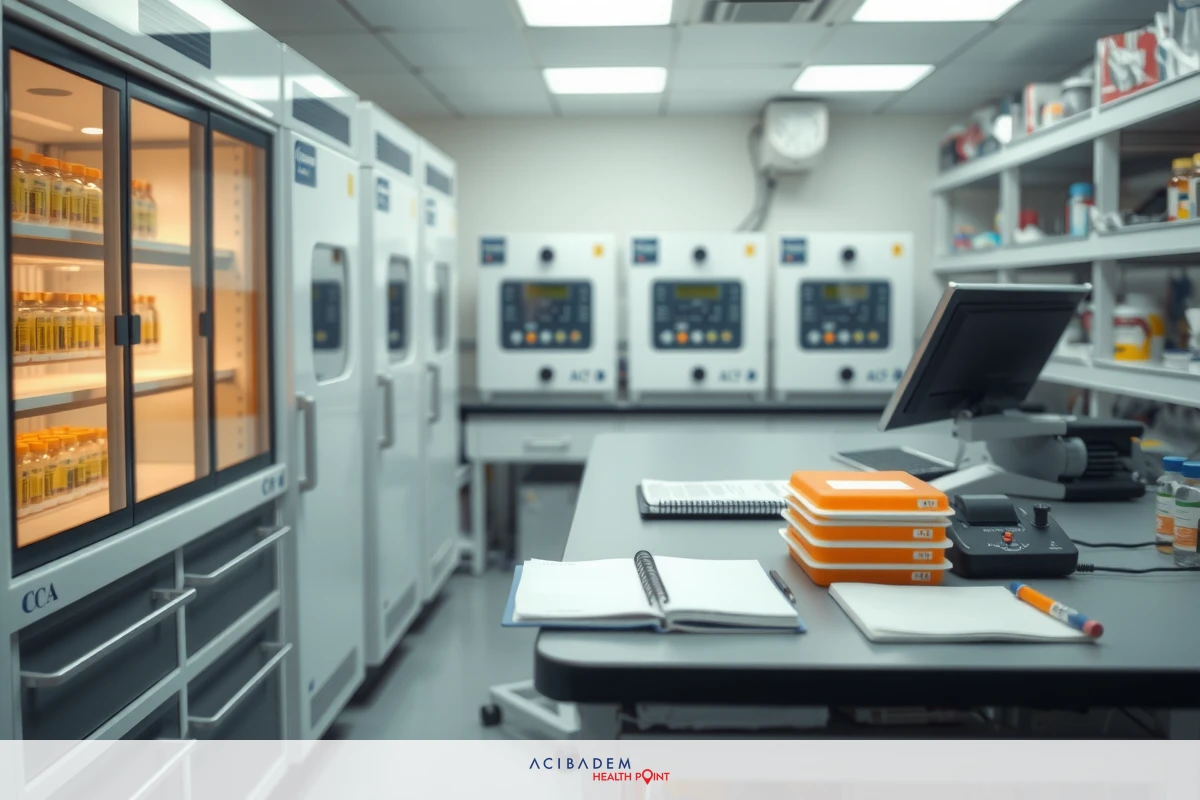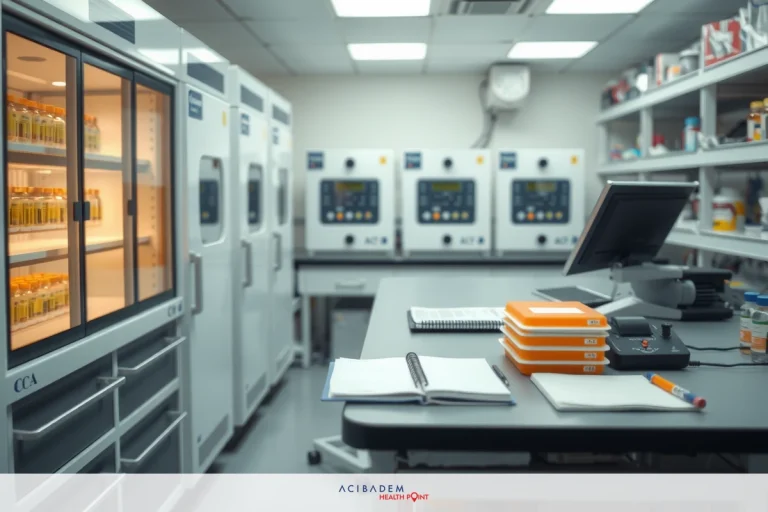What Are the Environmental Factors Affecting Monoclonal Antibody Therapy? Monoclonal antibody therapy has changed how we treat many health issues. But did you know that the world around us can affect its success? Things like temperature, light, and air quality play a big role. These factors might seem small but they are very important.
Imagine storing your medicine in a hot place. It could lose its power to help you feel better. The same goes for places with too much light or bad air quality. This is why understanding these elements matters.
Not only do these conditions impact the treatment itself but they also influence how it is given to people. Learning about them can make sure treatments work well and keep patients safe.
How Temperature Influences Therapy
Temperature is a key factor for monoclonal antibody therapy. When it gets too hot the treatment can lose its power. This affects the stability and efficacy of the therapy. Keeping medicines at the right temperature is vital. Even small changes in temperature can have big effects on these treatments.
Storing monoclonal antibodies in a cool place helps maintain their effectiveness. Warm conditions may break down important elements in the medicine. This breakdown makes them less potent and may cause health issues. So always check storage instructions to keep them safe.
Sometimes people overlook how crucial temperature control is for medical treatments. However ignoring this can lead to serious problems with efficacy and safety. Environmental factors like heat or cold are not just minor details; they are fundamental to successful therapy.
In hospitals and clinics strict rules exist for storing medications at proper temperatures. These rules ensure that patients get effective treatment every time they receive care. Monitoring these conditions closely helps avoid any negative impacts on health outcomes from unstable medications due to poor storage practices.
The Role Of Humidity In Treatment
Humidity is another key factor that affects monoclonal antibody therapy. High or low levels can change how these treatments work. When the air is too humid it may weaken the medicine. This impacts its stability and efficacy which are crucial for successful treatment.
Low humidity can also cause problems with therapy. Dry conditions might make the medication less effective over time. These changes pose significant challenges to maintaining proper treatment conditions for patients. Consistent humidity control helps ensure better health outcomes.
Maintaining balanced humidity levels is vital in storage areas and during transport. If not controlled both high and low humidity can degrade important elements of the medicine. This degradation reduces its potency and ability to help patients effectively.
In hospitals and clinics there are strict guidelines about storing medications at specific humidity levels. Following these rules ensures that treatments stay stable and effective when given to people who need them most. By paying attention to this environmental factor we promote better health impact through more reliable therapies.
So next time you think about where your medicine comes from or how it’s kept safe remember: controlling humidity plays a big role in making sure monoclonal antibody therapy works well.What Are the Environmental Factors Affecting Monoclonal Antibody Therapy?
Exposure To Light And Its Effects

Light exposure is a critical factor in monoclonal antibody therapy. When these treatments are exposed to light their effectiveness can change. This happens because light can break down the medicine’s active ingredients. Keeping them away from direct light helps maintain their stability.
Even short-term exposure to strong light can be harmful. It may reduce the efficacy of the treatment by degrading its essential components. Over time this makes it less effective for patients who rely on it for their health needs. Proper storage in dark places is crucial to avoid such issues.
Hospitals and clinics often store these medications in dark or opaque containers. These special containers block out harmful light rays that could impact the treatment conditions negatively. It’s a simple yet important step that ensures better health outcomes for those undergoing therapy.
Understanding how environmental factors like light affect monoclonal antibodies highlights why strict guidelines exist around storage practices. By keeping these therapies safe from unnecessary exposure, we can guarantee they remain potent and effective when administered to patients, supporting their overall health impact positively.
Storage Conditions And Safety
Proper storage conditions are essential for the safety of monoclonal antibody treatments. Storing these medications correctly keeps them effective. Bad storage can harm their stability and efficacy. This is why understanding proper treatment conditions is so important.
Temperature control plays a big role in safe storage. Too hot or too cold and the medicine may lose its power to help patients. Therefore keeping it at the right temperature ensures that it remains potent when needed most.
Humidity levels also matter in maintaining safe storage conditions. High humidity can weaken the medicine over time. On the other hand, low humidity may dry out key components, making them less effective for therapy challenges.
Light exposure should be minimized as well to maintain safety standards. Using dark containers or storing medicines in dim places helps avoid harmful effects from light exposure. These steps ensure that environmental factors do not negatively impact health outcomes.
Following strict guidelines on how to store these treatments safeguards their effectiveness and patient safety alike by preventing degradation due to improper handling or unsuitable environments during transport or waiting periods before use.What Are the Environmental Factors Affecting Monoclonal Antibody Therapy?
How Air Quality Affects Therapy
Air quality is a key factor in the administration of monoclonal antibody therapy. Poor air can impact how well the treatment works. Dust and pollutants may contaminate the medicine reducing its effectiveness. Clean air ensures that these therapies remain safe for use.
When administering treatments poor air quality poses significant challenges. Contaminated environments could lead to infections or other health issues during therapy. This makes it crucial to maintain proper treatment conditions at all times.
Good ventilation systems help improve air quality in storage areas and clinics. These systems remove harmful particles from the air keeping medications clean and effective for patients who need them most.
Environmental factors like bad air can also affect health outcomes indirectly by causing respiratory problems in patients undergoing treatment. Ensuring good airflow helps mitigate this risk promoting better overall health impact for those receiving monoclonal antibody therapies. Understanding how important clean air is highlights why strict guidelines exist around storage and administration practices involving these sensitive treatments.
Frequently Asked Questions
How does temperature impact monoclonal antibody therapy?
Temperature changes can affect the stability and efficacy of the treatment. Keeping medications at the right temperature is crucial for their effectiveness.
Why is humidity control important in storing these treatments?
Both high and low levels of humidity can degrade key components of the medicine making it less effective. Proper humidity control ensures better storage conditions.
Can light exposure really alter the effectiveness of monoclonal antibodies?
Yes, even short-term exposure to strong light can break down essential elements in the medication, reducing its potency and overall health impact.








